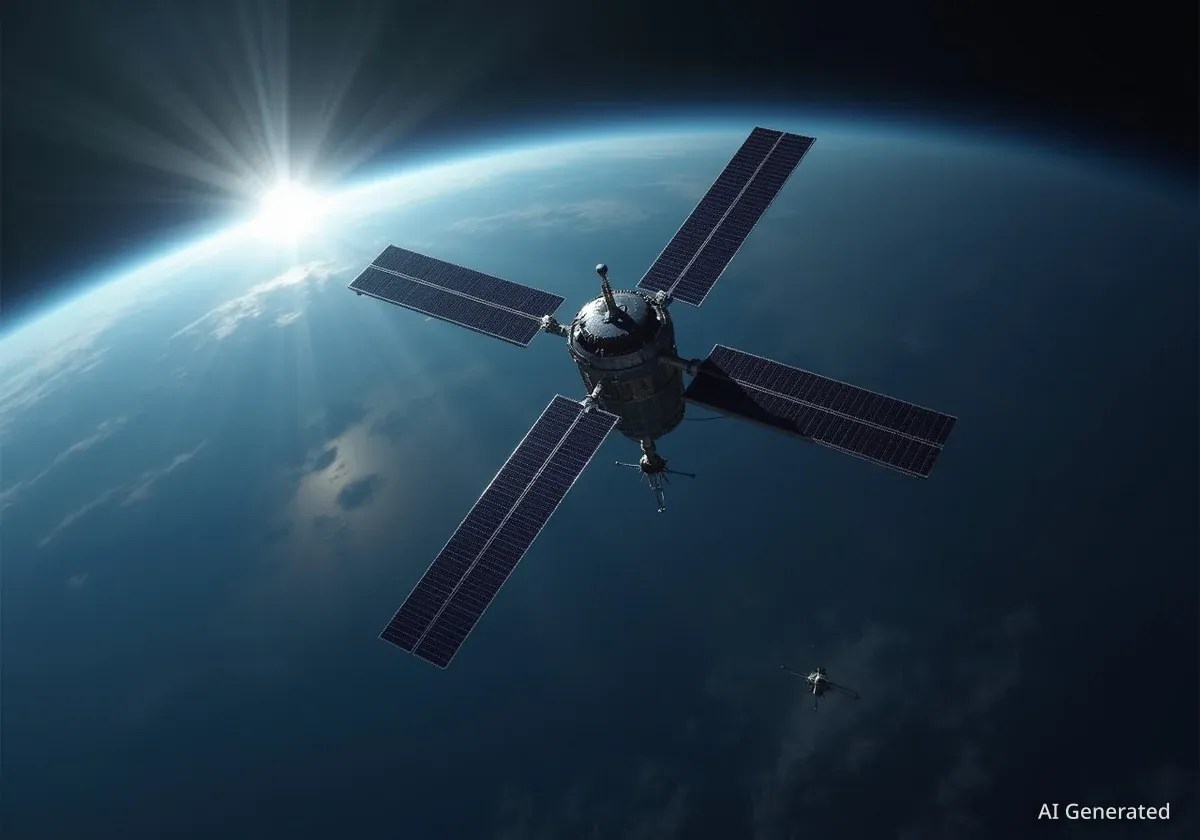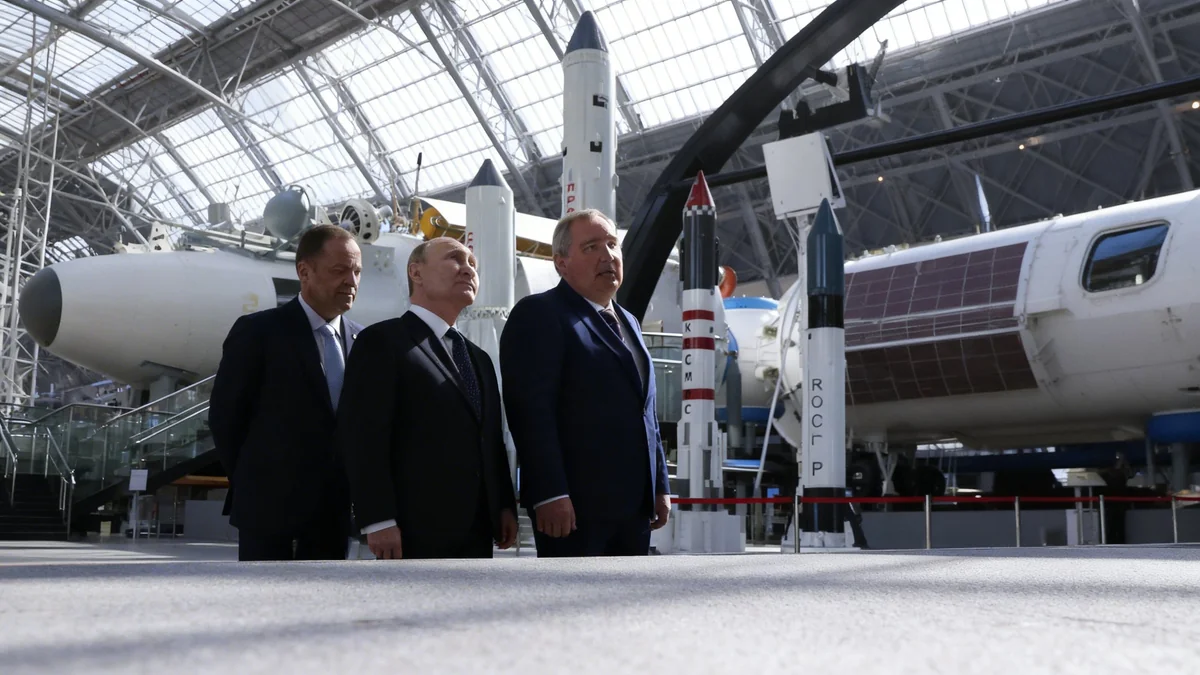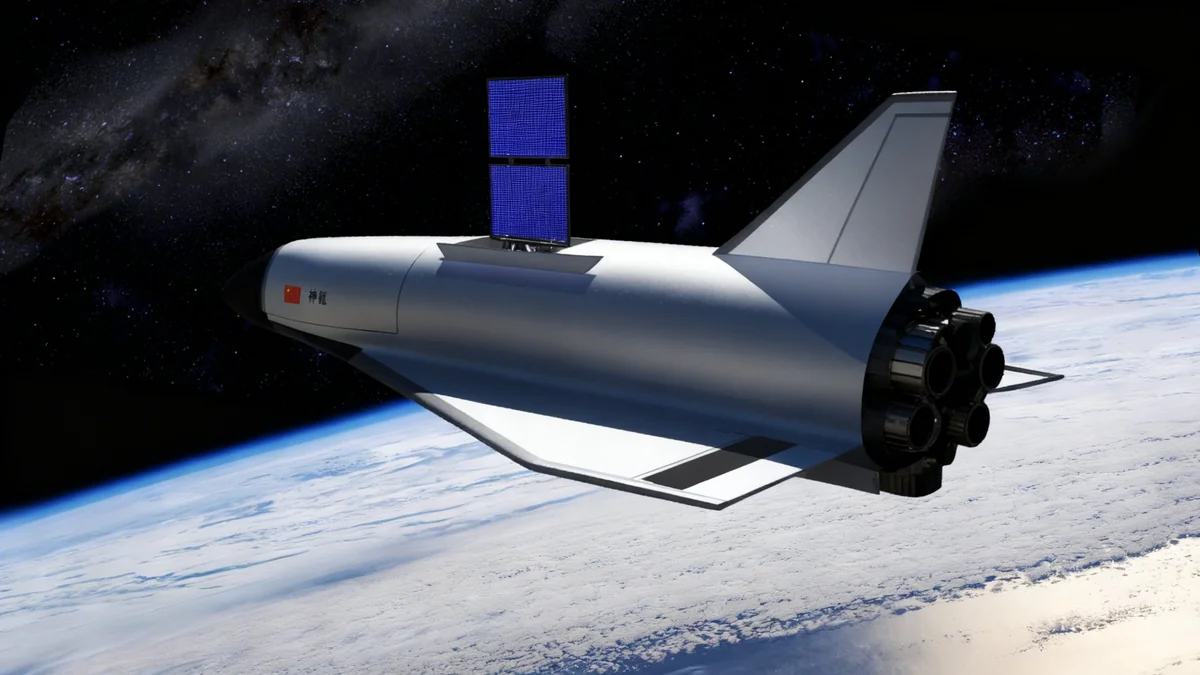Germany's defense minister, Boris Pistorius, has stated that Russian reconnaissance satellites are actively tracking satellites used by the German military. The accusation highlights growing concerns over the militarization of space and has prompted Germany to announce a multi-billion euro investment to enhance its orbital defense capabilities.
Speaking at a conference in Berlin, Pistorius identified specific Russian activities that he described as a direct threat, signaling a significant shift in Germany's approach to national security beyond Earth's atmosphere.
Key Takeaways
- German Defense Minister Boris Pistorius accused Russia of using Luch-Olymp reconnaissance satellites to track German military assets in orbit.
- Pistorius described Russia's actions in space as a "fundamental threat" that can no longer be ignored.
- In response, Germany will invest €35 billion ($41 billion) over the next five years to bolster its space defense programs.
- The investment aims to develop resilient satellite constellations, improve orbital surveillance, and create offensive deterrence capabilities.
- The minister cited a previous cyberattack on the ViaSat network as an example of how space-based assets are critical to national infrastructure.
Russian Satellites Tailing German Assets
German Defense Minister Boris Pistorius detailed the specific nature of the threat during a space conference in Berlin on Thursday. He reported that two Russian Luch-Olymp reconnaissance satellites, launched in 2014 and 2023, have been observed closely monitoring Intelsat satellites. These Intelsat platforms are utilized by the German military for communications and other operations.
According to Pistorius, the capabilities of these Russian devices are extensive. He warned they could be used to disrupt satellite operations, blind sensors, or even physically manipulate or destroy other satellites in orbit. This activity is part of a broader pattern of behavior that has raised international alarm.
"Russia's behavior, especially in space, poses a fundamental threat to us all," Pistorius stated at the conference. "It is a threat that we can no longer ignore."
These are not the first concerns raised about the Luch-Olymp satellites. In the past, they have been accused of maneuvering close to other nations' satellites in what has been described as "eavesdropping" behavior. In May 2024, French space startup Aldoria reported a close approach by one of the satellites to another object in geostationary orbit. Similarly, U.S. firm Slingshot Aerospace has documented a Russian satellite making repeated stops near non-Russian satellites.
A New Domain for Military Competition
The German defense minister placed these recent events in a wider geopolitical context. He asserted that both Russia and China have been rapidly expanding their military capabilities in space, turning the domain into a new arena for strategic competition.
"Russia and China have expanded their capabilities for warfare in space rapidly over the past years," Pistorius said. He also noted that approximately 39 Chinese and Russian reconnaissance satellites are currently flying over Germany, capable of transmitting real-time surveillance data.
The Vulnerability of Modern Societies
Pistorius emphasized that advanced economies are heavily reliant on space-based infrastructure. He referred to satellite networks as the "Achilles' heel of modern societies," explaining that a successful attack on these systems could have cascading effects. An attack could paralyze communications, financial systems, and critical infrastructure for an entire nation.
To illustrate the point, he referenced the 2022 cyberattack on the ViaSat satellite network. The attack, attributed to Russia, occurred just before the full-scale invasion of Ukraine and had spillover effects in Europe, including disrupting the remote control of approximately 6,000 wind turbines in Germany.
Germany's €35 Billion Response Plan
In direct response to these perceived threats, Germany is launching a major initiative to strengthen its space security. Pistorius announced a €35 billion ($41 billion) investment into the country's space programs over the next five years.
This funding is designed to create a more robust and defensible space architecture for Germany and its allies. The plan includes several key components:
- Resilient Satellite Constellations: Developing new satellites designed to withstand jamming, blinding, and direct kinetic attacks.
- Improved Orbital Surveillance: Enhancing Germany's ability to track objects in orbit through advanced ground-based radars and telescopes.
- Guardian Satellites: Deploying satellites specifically designed to protect other critical German assets in space.
- Offensive Capabilities: Developing systems that can serve as a deterrent against potential aggression in orbit.
Germany's Space Command
The new initiatives will be managed through Germany's military satellite operations center, which is part of the Bundeswehr's Space Command. This command was established in 2021 to centralize the nation's military space activities and respond to the evolving security landscape in orbit.
The investment marks a pivotal moment for German defense policy, reflecting a growing consensus among NATO members that space is a critical military domain that requires dedicated defense and deterrence strategies.
Implications for NATO and Global Security
Germany's public accusations and substantial financial commitment are expected to influence the strategic posture of the entire NATO alliance. Pistorius called for allies to collectively develop offensive capabilities in space to create a credible deterrent against actions from adversaries like Russia and China.
The Kremlin has not yet issued a formal response to the German defense minister's allegations. However, the situation increases tensions in an already strained geopolitical environment. The focus will now shift to how Russia reacts to being publicly called out and whether it will alter the behavior of its satellites.
For NATO, the challenge is to formulate a unified response that can deter aggression in space without escalating the situation into open conflict. Germany's decisive action may encourage other member states to increase their own investments in space security, leading to a new phase of strategic planning and capability development within the alliance.





